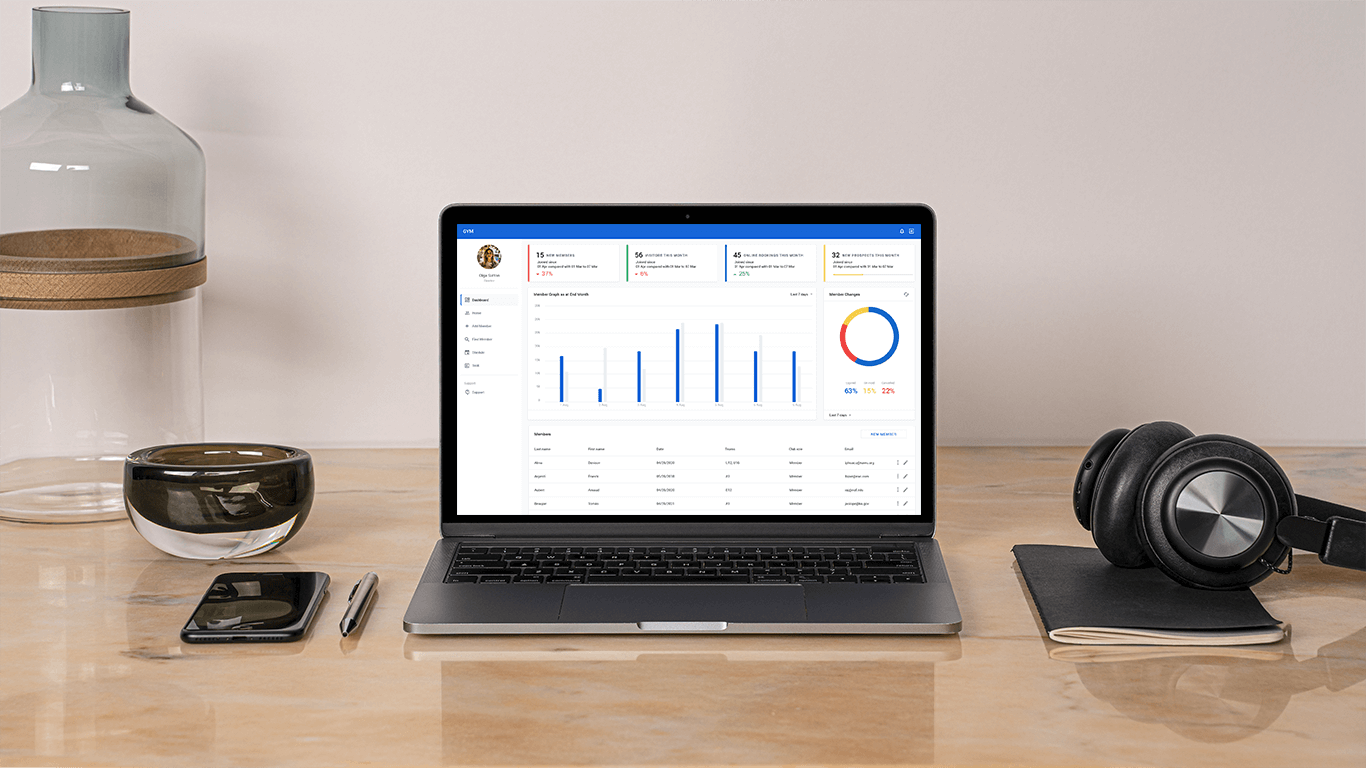AI-powered Community App Development for Sports Clubs and Their Members
An efficient and convenient AI-powered communication platform for sports clubs and their members both amateur and professional.
Challenge
With years of experience in sports tech, specialists from Mbicycle can surely say that sports applications are finding more engagement with their users. This trend is facilitated by the popularity of a healthy-focused lifestyle, social networks, and the latest technologies that involve all areas of human life. Proper community app development could bring all these aspects together in one application for sports amateurs and professionals alike.
The main idea of this German-based startup was to create a modern online space for the members of different sports organizations, such as fitness centers, gyms, and professional sports clubs, where they could network, follow each other’s activities, and always stay updated on their particular club’s news. The task for Mbicycle was to create an up-to-date web communication portal along with a convenient mobile app.
Thanks to our previous experience of developing Sports Station, ShotTracker, and a few other sports applications, Mbicycle’s team provided the client with a detailed blueprint and estimates. Once the client approved the team’s final line-up, we started our work on this solution.

Solution
Our team worked together on both the web and mobile applications to provide clubs in different sports — such as yachting, football, basketball, fitness, bodybuilding — with a handy and efficient way to engage with their members.
Both the web and mobile versions of the solution supported full-featured access for both sports clubs and their members. Registered sports clubs could promote their offers and keep their customers in the loop about their activities. Club members could follow their favorite sports clubs and other members, discuss any issues with the club administration through group or personal chats using the in-app messenger, and leave feedback. We also added the My Clubs section, where users could read the story behind every club and learn more about the clubs they subscribed to.
The Web App
To deliver the web version of this sports community app, our team carried out the following tasks:
Developing a microservice-based architecture, which was necessary for scaling the service in the future and avoiding potential bottlenecks caused by high numbers of concurrent chat participants. We used the following to get this task done:
- Single Sign-On (SSO)
- WebFlax API Gateway
- User API
- Notification API
- Messenger API (WebSocket + REST)
- Structure API
- FileStorage API
Structuring user roles. We created the structure of the user roles to include system administrators and club administrators, as well as the hierarchy of club members depending on the type of their organization (for example, managers of football or basketball teams within the same clubs). We also set up role-based access and designed personalized interfaces according to this user role structure.
Adding an AI-assistant. Our developers plugged a chatbot from OpenAI to let users stay updated about the latest news of every gym or fitness club, find specific training programs and diet plans, as well as plan their overall activities easily and efficiently.
Implementing a messenger. We developed a proprietary messenger core using WebSocket and implemented a user messaging system based on it. We also applied certain architectural approaches in order to simplify the scaling of the messenger in the future, using synchronization between services.
The Native Mobile Applications
Our mobile app development outsourcing team started by implementing the registration functionality, where users fill in their personal information (age, gender, address), adjust privacy settings, define their favorite teams and sports. At this step, the Mbicycle developers added user validation, animations, and all the necessary fields for each screen.
In-app chats — and especially AI-based chatbot — became one of the most-used features of our solution. It enabled users to swiftly communicate with their club management or other members of their club and get personalized assistance on-the-go. Club admins can also create group chats either in the mobile app or through the web interface to share their news and achievements, get feedback on their work, and inform club members about any changes to upcoming events and other activities.
Process
At the discovery stages, our analytics singled out two main directions of the project development. First, the Mbicycle development team worked simultaneously on both web and mobile versions of this software. Second, implementing the messenger and AI-chatbot features was a priority just to assure convenient access to various options for club members.
Our team followed the Agile / Scrum development methodology with daily meetings. The entire workflow was divided into two-week sprints. Our team also worked with Jenkins, Docker, TestFlight, and Fabric to develop a CI/CD system for automating builds.
The entire project team included:
- Tech lead
- 2 backend Java developers
- iOS developer
- Android developer
- Frontend VueJS developer
- Project manager
- Business Analyst
- Designer
- 2 QA engineers
Technologies & Tools
Programming languages
Java, Kotlin, Swift
Frontend framework
VueJS
Architecture
Microservices
Libraries & frameworks
Spring Framework, Spring Cloud, OpenAI API, GPT-4, Llama, Gemini, Android SDK, Glide, iOS SDK, GoogleMaps SDK, Fabric, Crashlytics, Jenkins, JUnit, Docker, Apache
Results
After four months of well-knit cooperation, experts from Mbicycle provided a server-side solution that was completely ready for operation and scaling. We also implemented an administration panel on the client-side, AI-chatbot and messenger features for users, and developed iOS and Android mobile apps with robust functionality to meet all the initial requirements. The client noted that the integration of AI-based functionality allowed them to speed up in-app communication and provided their customers convenient access to various useful information.
At the moment, we are working on converting the server-side part into a ready-made SDK for the client to differentiate their commercial offering and start distributing this packaged solution to other interested companies.



